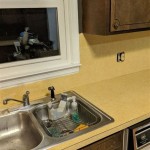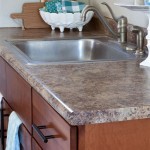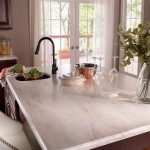Countertop Fruit and Vegetable Storage
Maintaining the freshness and quality of fruits and vegetables after bringing them home is important to minimize waste and enjoy their nutritional benefits. Countertop storage can be an ideal option for certain produce items, allowing for easy access, monitoring of ripeness, and quick use.
Choosing the Right Produce for Countertop Storage:
Not all fruits and vegetables are suitable for countertop storage. Some require refrigeration to prevent spoilage, while others benefit from controlled temperature and moisture levels. Fruits and vegetables that thrive on the countertop include:
- Apples
- Avocados (ripening)
- Bananas
- Citrus fruits (oranges, grapefruits, lemons, limes)
- Garlic
- Mushrooms
- Onions
- Potatoes
- Sweet potatoes
- Tomatoes (counter-ripening)
Creating the Ideal Countertop Environment:
To ensure optimal storage conditions, consider the following factors:
- Room temperature: Maintain a cool, well-ventilated area with temperatures between 55-65°F (13-18°C).
- Light conditions: Avoid direct sunlight, as it can accelerate ripening. Choose a shaded or less lit spot.
- Circulation: Ensure good air circulation to prevent moisture accumulation and potential spoilage.
Tips for Storage:
- Separate ripening items: Keep fruits and vegetables that release ethylene gas (bananas, apples) away from those that are sensitive to it (tomatoes, potatoes).
- Use breathable containers: Place produce in perforated bowls, baskets, or open containers to promote airflow.
- Avoid moisture: Keep fruits and vegetables dry to prevent rot. Use paper towels or clean cloths to absorb excess moisture from produce.
- Check regularly: Monitor produce for signs of spoilage, such as soft spots, discoloration, or mold.
- Store in bulk: Keep produce in larger quantities to prevent bruising.
Additional Considerations:
- Consider ethylene sensitivity: Some fruits and vegetables (such as apples, pears, melons) produce ethylene gas, which can speed up ripening in other produce. Store ethylene-sensitive fruits and vegetables separately.
- Monitor ripening: Some fruits (such as bananas, avocados) continue to ripen at room temperature. Monitor their ripeness and adjust storage methods as needed.
- Avoid overripe produce: If produce becomes overripe, it should be stored in the refrigerator or used immediately.
Conclusion:
By following these guidelines, you can effectively store fruits and vegetables on the countertop, preserving their freshness, quality, and nutritional value. Remember to check produce regularly for signs of spoilage and adjust storage methods as necessary to maximize its shelf life.

Ditch Countertop Produce Bowls And Try This Clever Storage Solution Instead

Wall Mounted Stackable Kitchen Wire Baskets For Fruit Vegetables And Potatoes Efficient Countertop Organizer From Pangpangya 28 29 Dhgate Com

6 Kitchen Helpers Your Countertop Needs

Countertop Fruit Storage Sold On Temu United States

Fruit Storage Crate Ideas For Kitchen Countertop Holder Bin Vegetable Etsy

Large Capacity Rectangular Countertop Fruit And Vegetable Storage Rack Detachable Stackable Space Saving Kitchen Organizer With Wall Mount Desig

Kitchen Vegetable Shelves Double Countertops Fruit And Storage Baskets Snack Racks Joom

Top 10 Produce Storage Solutions Ana White

Rotto Metal 2 Tier Countertop Fruit And Vegetable Storage Basket Holder Black At Best S In India Jio

S Fruit And Vegetable Storage Ideas For A Decor Lover Kitchen Decoist
See Also








